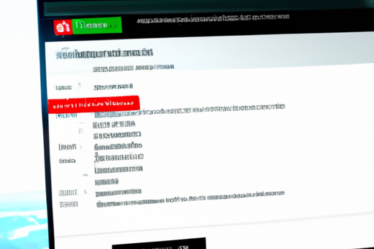
The Challenges I Faced with My SWISS EU261 Claim
My SWISS EU261 Claim Turned Out to be Anything but Easy
When my flight with SWISS was delayed for over three hours, I thought filing a claim under EU261 would be a straightforward process. Little did I know that I would face numerous challenges along the way. In this article, I will share the difficulties I encountered and the lessons I learned from my experience.
First and foremost, gathering all the necessary documentation proved to be a daunting task. According to EU261 regulations, I needed to provide proof of my flight details, such as the booking confirmation and boarding pass. Additionally, I had to obtain a letter from SWISS stating the reason for the delay. While I expected this to be a simple request, it took several phone calls and emails to finally receive the required documentation. This initial hurdle made me realize the importance of being proactive and persistent when dealing with airlines.
Once I had all the necessary paperwork, I proceeded to submit my claim to SWISS. However, their response was far from satisfactory. They initially rejected my claim, stating that the delay was due to extraordinary circumstances beyond their control. This came as a surprise to me, as the delay was caused by a technical issue with the aircraft. Determined to fight for my rights, I decided to escalate the matter further.
I reached out to the national enforcement body responsible for overseeing EU261 claims in my country. They provided me with valuable guidance on how to proceed. Armed with this information, I wrote a detailed letter to SWISS, explaining why I believed they were responsible for compensating me under EU261. I also attached all the relevant documentation to support my case. This time, SWISS responded more positively, acknowledging their liability and offering me compensation.
However, the challenges did not end there. SWISS informed me that they would only provide compensation in the form of a voucher, which could only be used towards future flights with their airline. This was not what I had expected or desired. I wanted a cash refund, as I had no immediate plans to fly with SWISS again. I decided to push back and insisted on receiving a cash refund, as allowed by EU261.
This led to a lengthy back-and-forth with SWISS, with both parties standing their ground. It was frustrating to encounter such resistance, especially when the regulations clearly stated my right to a cash refund. Eventually, after several weeks of negotiation, SWISS agreed to refund the amount owed to me in cash. It was a small victory, but it came at the cost of time and energy.
Reflecting on my experience, I realized that navigating the complexities of EU261 claims requires patience, persistence, and a good understanding of the regulations. It is essential to be well-informed about your rights as a passenger and to stand up for them when necessary. Additionally, seeking guidance from the appropriate authorities can be immensely helpful in resolving disputes with airlines.
In conclusion, my SWISS EU261 claim turned out to be far from easy. From the challenges of gathering documentation to the resistance faced from the airline, it was a journey filled with obstacles. However, by being proactive, persistent, and well-informed, I was able to overcome these challenges and secure the compensation I was entitled to. I hope that sharing my experience will help others facing similar situations and empower them to fight for their rights as air passengers.
Lessons Learned from My SWISS EU261 Claim Experience

My SWISS EU261 Claim Turned Out to be Anything but Easy
When my flight with SWISS was delayed for over three hours, I thought filing a claim under EU261 would be a straightforward process. Little did I know that it would turn out to be anything but easy. However, through this experience, I learned some valuable lessons that I would like to share with others who may find themselves in a similar situation.
First and foremost, it is crucial to understand your rights as a passenger under EU261. This regulation provides compensation for flight delays, cancellations, and denied boarding, as long as the airline is at fault. In my case, SWISS was responsible for the delay, so I was entitled to compensation. Knowing your rights empowers you to take the necessary steps to claim what you are owed.
The next lesson I learned was the importance of documenting everything. From the moment my flight was delayed, I made sure to keep a record of all relevant information, including the flight number, departure time, and the reason provided by the airline for the delay. Additionally, I took photos of any notices or announcements made at the airport. These records proved invaluable when I later had to provide evidence to support my claim.
Once I had gathered all the necessary documentation, I proceeded to submit my claim to SWISS. I expected a prompt response and a smooth process, but unfortunately, that was not the case. It took several weeks for the airline to acknowledge my claim, and even then, they requested additional information that I had already provided. Patience and persistence became my allies during this frustrating period.
After numerous back-and-forth communications with SWISS, they finally accepted my claim and agreed to compensate me. However, the amount they offered was significantly lower than what I was entitled to under EU261. This led me to the next lesson I learned – do not settle for less than what you deserve. It is essential to be aware of the compensation amounts outlined in EU261 and to assertively negotiate with the airline if they offer less. In my case, I provided evidence of the regulation and insisted on receiving the full amount I was entitled to. Eventually, SWISS agreed to pay the correct compensation.
Throughout this experience, I also discovered the value of seeking assistance when needed. Dealing with airlines can be a daunting task, especially when they seem unresponsive or unwilling to cooperate. In my case, I reached out to a consumer rights organization that specializes in EU261 claims. They provided me with guidance, reviewed my claim, and even intervened on my behalf when necessary. Having their support made the process much smoother and less stressful.
In conclusion, my SWISS EU261 claim experience taught me several valuable lessons. Understanding your rights, documenting everything, being patient and persistent, not settling for less, and seeking assistance when needed are all crucial aspects of successfully claiming compensation under EU261. While the process may not always be easy, it is important to remember that you have the right to be compensated for flight disruptions caused by the airline’s fault. By arming yourself with knowledge and following these lessons, you can navigate the claims process with confidence and increase your chances of receiving the compensation you deserve.
Tips for Navigating the Complexities of SWISS EU261 Claims
My SWISS EU261 Claim Turned Out to be Anything but Easy
If you’ve ever had a flight delay or cancellation, you may be familiar with EU261, a regulation that protects passengers’ rights in the European Union. As a frequent traveler, I’ve had my fair share of flight disruptions, and I’ve become quite adept at navigating the complexities of EU261 claims. However, my recent experience with SWISS proved to be anything but easy.
It all started when my flight from Zurich to London was delayed by over three hours. Frustrated but determined, I knew I was entitled to compensation under EU261. I promptly filed a claim with SWISS, providing all the necessary documentation and details of the delay. Little did I know that this would be just the beginning of a long and arduous process.
Days turned into weeks, and weeks turned into months, with no response from SWISS. I reached out to their customer service multiple times, only to be met with vague promises of “looking into it” or “escalating the matter.” It seemed like my claim had fallen into a black hole, and I was left in limbo, unsure of whether I would ever receive the compensation I was entitled to.
Frustrated and running out of patience, I decided to take matters into my own hands. I started researching online forums and communities where fellow travelers shared their experiences with SWISS EU261 claims. It was through these channels that I discovered a few tips and tricks that would prove invaluable in navigating the complexities of the process.
First and foremost, it’s important to be persistent. Don’t give up after a few unsuccessful attempts at contacting the airline. Keep calling, emailing, and reaching out through social media until you get a satisfactory response. Remember, you have a right to compensation, and it’s up to the airline to fulfill their obligations.
Secondly, document everything. Keep a record of all your communication with the airline, including dates, times, and the names of the customer service representatives you spoke to. This will come in handy if you need to escalate your claim or seek legal assistance.
Another tip is to familiarize yourself with the specific requirements of EU261. Each airline may have its own interpretation of the regulation, so it’s important to know your rights and what you’re entitled to. This will help you make a stronger case and ensure that you receive the compensation you deserve.
Lastly, don’t be afraid to seek professional help if necessary. There are numerous companies and organizations that specialize in handling EU261 claims on behalf of passengers. While they may charge a fee, their expertise and experience can greatly increase your chances of success.
After implementing these tips, I finally received a response from SWISS. They acknowledged my claim and offered me the compensation I was entitled to. While it was a relief to finally have a resolution, I couldn’t help but feel frustrated by the lengthy and convoluted process I had to endure.
In conclusion, navigating the complexities of SWISS EU261 claims can be a daunting task. However, with persistence, documentation, knowledge of your rights, and, if necessary, professional assistance, you can increase your chances of a successful claim. Remember, you have the right to compensation, and don’t let the airline’s bureaucracy deter you from seeking what you deserve.


